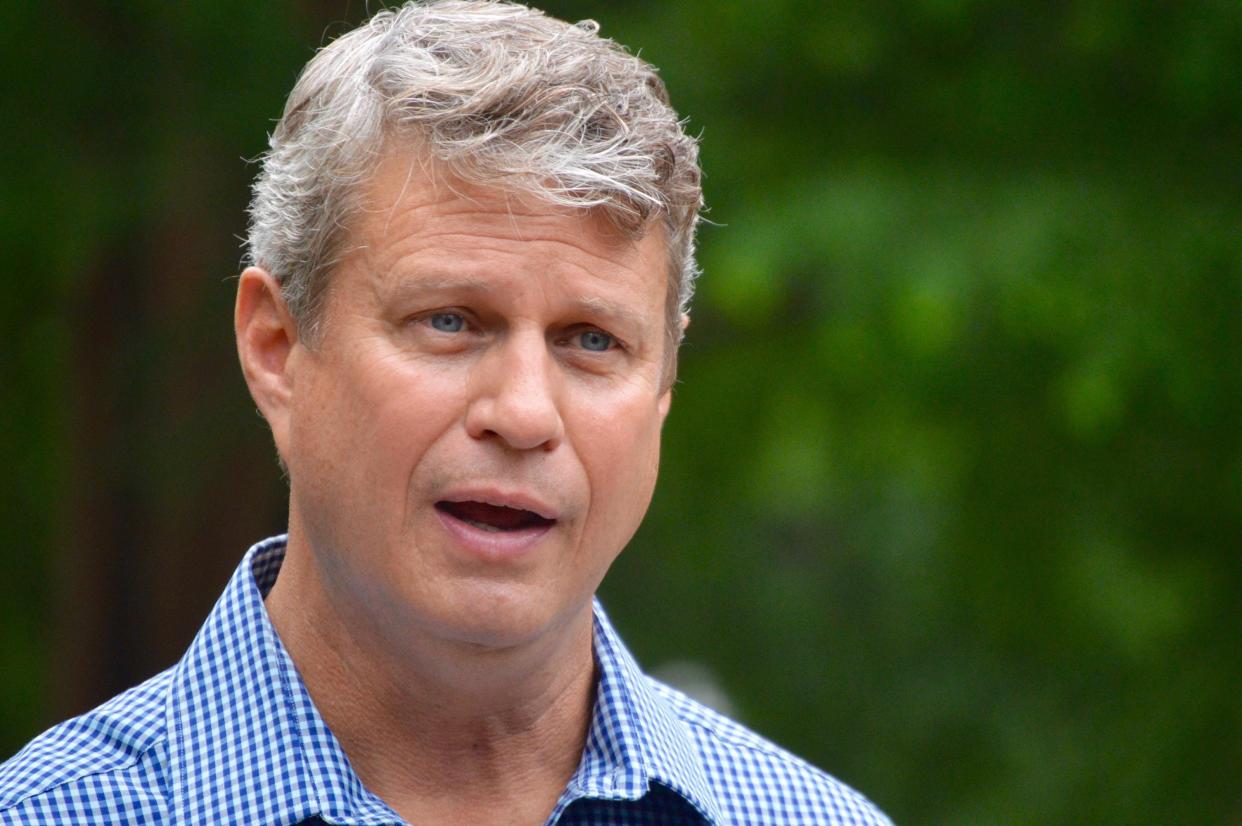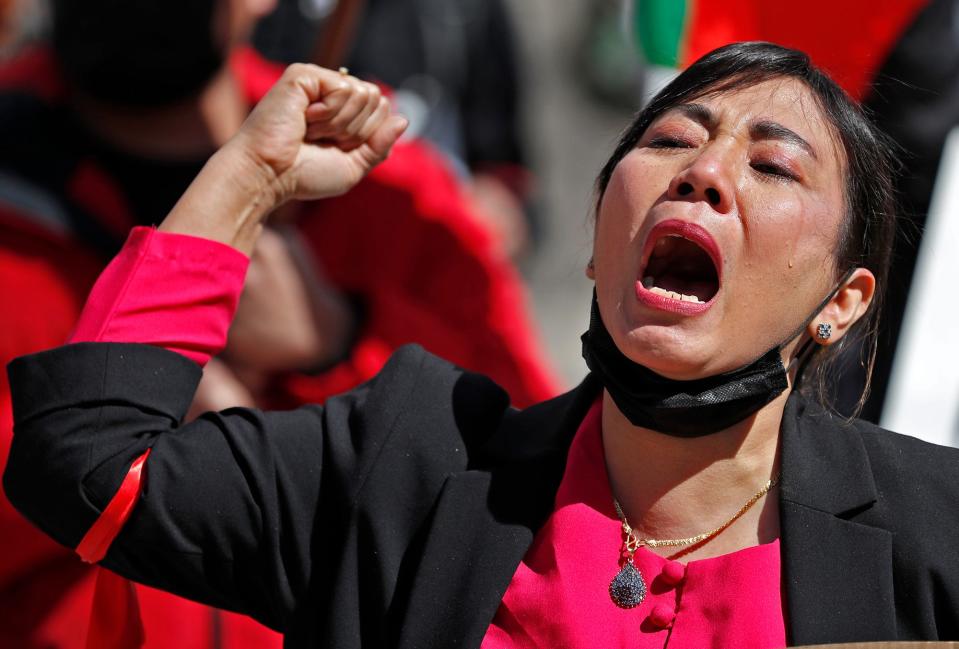My Take: Huizenga plays politics as Myanmar burns

- Oops!Something went wrong.Please try again later.
Take a moment to think back to your Christmas Eve last month here in West Michigan. Chances are you were either enjoying time with family, attending a Christmas service, or engaging in other holiday traditions.
Yet, half a world away in Myanmar (Burma), many Christians spent the holiday season fleeing for their lives. On Christmas Eve, the Myanmar military set fire to over 35 civilians in their vehicles, including women and children, leaving their bodies burned beyond recognition. Two of the victims of the attack in Kayah State were humanitarian aid workers providing lifesaving nutrition support on behalf of the aid organization Save the Children. Both victims were new fathers.
Feb. 1 marks one year since the Myanmar military overthrew the democratically elected government of Aung San Suu Kyi. In that time, nearly 1,500 innocent people have been killed and over 11,000 democracy activists have been arrested.
Myanmar’s economy has ground to a halt because of the country wide civil disobedience movement. To overcome economic and financial challenges, the military is now relying on oil and natural gas revenues to fund its repression. About 50 percent of Myanmar’s foreign currency comes from natural gas revenues, with the military government expected to earn $1.5 billion from offshore and pipeline projects in 2021-22. These payments fuel the military’s barbaric atrocities and the continued operation of oil companies in Myanmar makes them complicit in human rights abuses.
Pressure from civil society organizations is an effective tool for identifying and exposing illicit flows of money that support tyrannical regimes like the one in Myanmar. Public disclosure of payment information allows activist groups to investigate and shame human rights abusing governments and the companies that support them.

Tragically, for the vulnerable people in Myanmar, Rep. Bill Huizenga has led a decades-long effort on behalf of oil interests to get rid of a valuable anti-corruption tool, Section 1504 of the Dodd-Frank Wall Street Reform Act. Section 1504 requires oil, gas, and mining companies to disclose the payments they make to foreign governments. The transparency law was a vital tool to expose backroom deals in a notoriously corrupt industry and enabled communities to sustainably manage their resources.
Section 1504 is critical to fighting the “resource curse,” the phenomena whereby people living in countries that are rich in natural resources are often among the world’s poorest. By gutting Section 1504, Huizenga has undermined anti-corruption efforts and peace processes around the world.
Ever the opportunistic politician, Bill Huizenga has conveniently ignored his past actions to stymie transparency in the extractive industry sector by voting for legislation like the Burma Act of 2021. The bill authorizes humanitarian assistance, support for the protection of human rights, and calls for transparency in Myanmar’s extractive industries.
I welcome Huizenga’s support for the Burma Act 2021, but does anyone else see the irony in a U.S. politician spending a decade shielding U.S. companies from transparency, while voting for legislation that tells an illegitimate military dictatorship that it must be transparent and address corruption?
In the political sphere there is often talk of “American Exceptionalism”, the idea that the U.S. is uniquely virtuous. This may comfort some Americans, but because of politicians like Bill Huizenga this ethical high ground is a myth.
It is exceptionally hypocritical that a U.S. politician’s decade of work on the House Financial Services Committee has allowed Chevron to withhold details of how much it pays to the military government in Myanmar. It egregiously took Chevron nearly a year to stop paying hundreds of millions of dollars into bank accounts that are controlled by the military junta. While Huizenga shields Chevron and other oil interests, Myanmar burns.
Huizenga’s actions epitomize why so many in middle-America hold a collective disdain for Washington politics. In December I received an email from Huizenga’s communications team highlighting his support for the Burma Act. The fact that Huizenga has spent a decade undermining resource transparency and then emails constituents to score political points on an issue that he has worked to undermine is politics at its worst.
Many of my friends and former students in Myanmar are Chin, a predominantly Christian ethnic minority who live in western Myanmar. They have long faced repression, often having their churches destroyed and travel restrictions placed on preachers. If my friends in Myanmar are ever to have an opportunity to celebrate Christmas in peace, it will require that politicians like Bill Huizenga stop undoing critical anti-corruption and transparency legislation.
— Brendon Thomas is a resident of West Olive.
This article originally appeared on The Holland Sentinel: My Take: Huizenga plays politics as Myanmar burns

